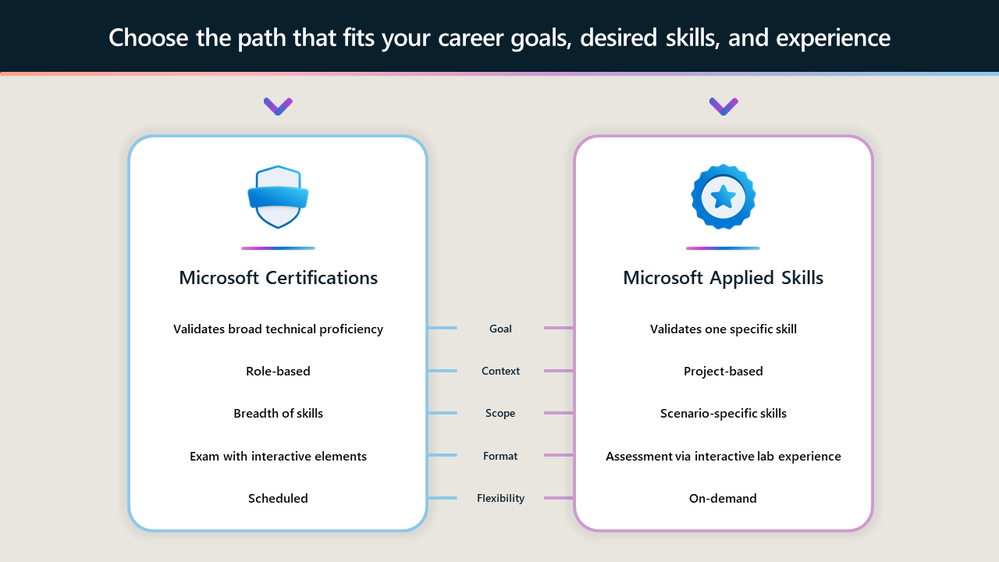
Introduction:
In today’s rapidly evolving technological landscape, the demand for individuals with practical, hands-on skills has never been higher. Recognizing this need, Microsoft has been at the forefront of empowering individuals with the tools and knowledge necessary to thrive in the digital era. One of their key initiatives in this regard is the Microsoft Applied Skills program – a comprehensive suite of resources designed to equip learners with practical skills that are directly applicable in the real world.
What are Microsoft Applied Skills?
Microsoft Applied Skills is a dynamic and forward-thinking initiative aimed at bridging the gap between traditional education and the skills demanded by today’s job market. It goes beyond theoretical knowledge and focuses on providing learners with practical, industry-relevant skills that can be immediately applied in various professional settings.
Key Components of Microsoft Applied Skills:
- Cloud Computing and Azure Services: The program delves into the realm of cloud computing, emphasizing Microsoft Azure services. Participants gain hands-on experience in deploying, managing, and securing cloud-based solutions – a crucial skill in a world where businesses are rapidly migrating to cloud platforms.
- Data Science and Analytics: Microsoft Applied Skills places a strong emphasis on data science and analytics, recognizing the growing importance of data-driven decision-making. Participants learn how to analyze and interpret data, derive meaningful insights, and present findings to drive informed business strategies.
- Artificial Intelligence and Machine Learning: With AI and machine learning becoming integral parts of various industries, the program equips learners with the knowledge and skills needed to develop and deploy AI solutions. From understanding algorithms to building intelligent applications, participants gain a deep understanding of this cutting-edge technology.
- Collaboration and Communication Tools: In the modern workplace, effective collaboration is key. Microsoft Applied Skills includes training on tools such as Microsoft Teams, SharePoint, and OneDrive, ensuring that participants are well-versed in the collaborative technologies widely used in today’s professional environment.
- Cybersecurity: Security is a top priority in the digital age, and the program addresses this by providing insights into cybersecurity best practices. Participants learn how to safeguard systems, networks, and data, enhancing their ability to contribute to a secure digital environment.
Benefits of Microsoft Applied Skills:
- Industry-Relevant Knowledge: The program is designed in collaboration with industry experts, ensuring that the skills taught are directly applicable to real-world scenarios. This industry relevance enhances the employability of participants.
- Hands-On Learning: Unlike traditional education models, Microsoft Applied Skills emphasizes hands-on learning. Participants actively engage with the tools and technologies they are learning about, solidifying their understanding through practical application.
- Career Advancement: The skills acquired through Microsoft Applied Skills can open doors to new career opportunities and advancement within existing roles. Employers increasingly value candidates who possess practical, job-ready skills.
- Global Recognition: Microsoft certifications earned through the program are globally recognized, providing participants with a valuable credential that attests to their proficiency in the respective technologies.
Conclusion:
In a world where adaptability and practical skills are paramount, Microsoft Applied Skills stands as a beacon, guiding individuals toward success in the digital age. By empowering learners with industry-relevant knowledge and hands-on experience, this program not only bridges the skills gap but propels individuals towards thriving careers in the ever-evolving landscape of technology. As we look to the future, Microsoft Applied Skills remains a key enabler, unlocking the potential of individuals and preparing them for the challenges and opportunities of tomorrow.
